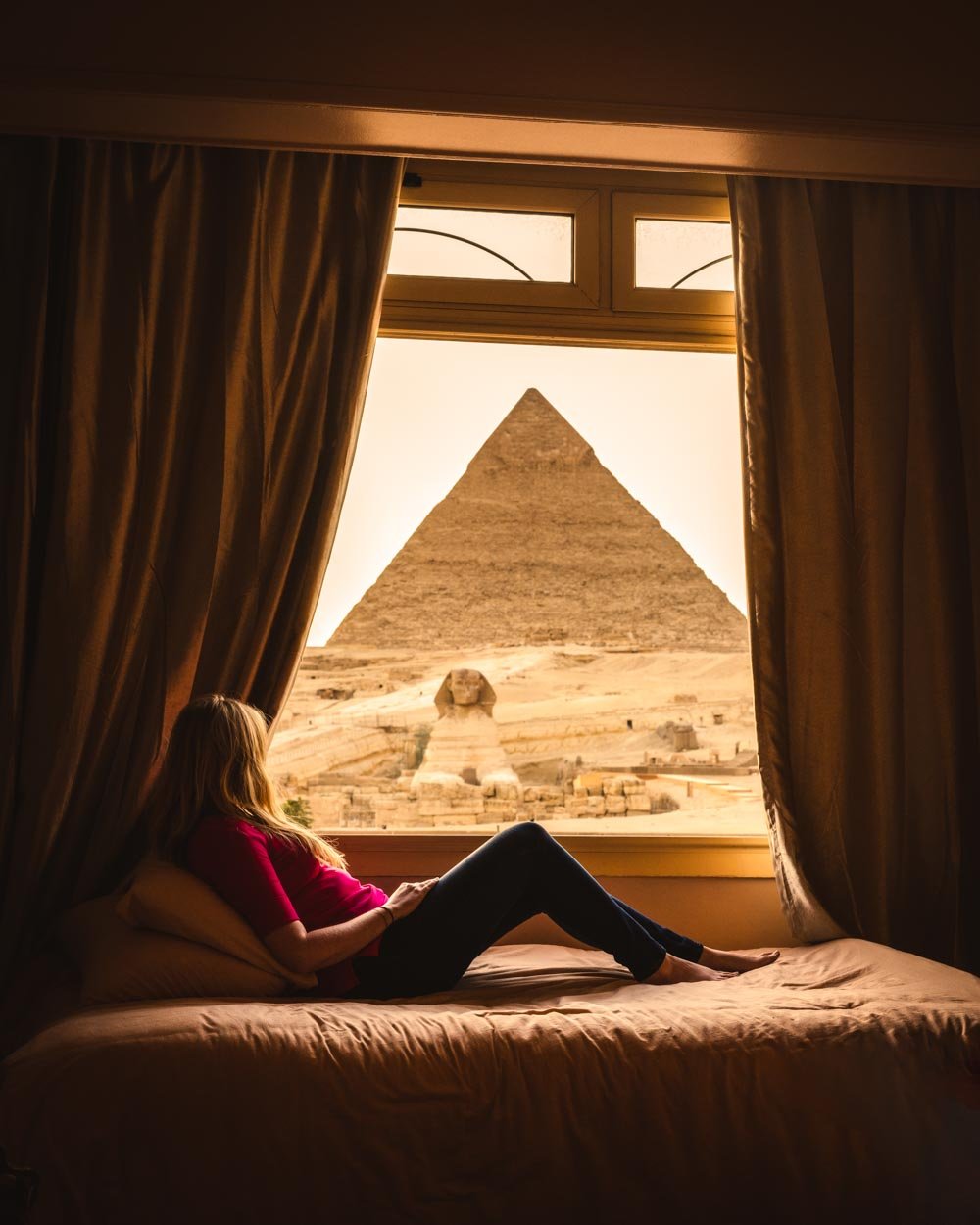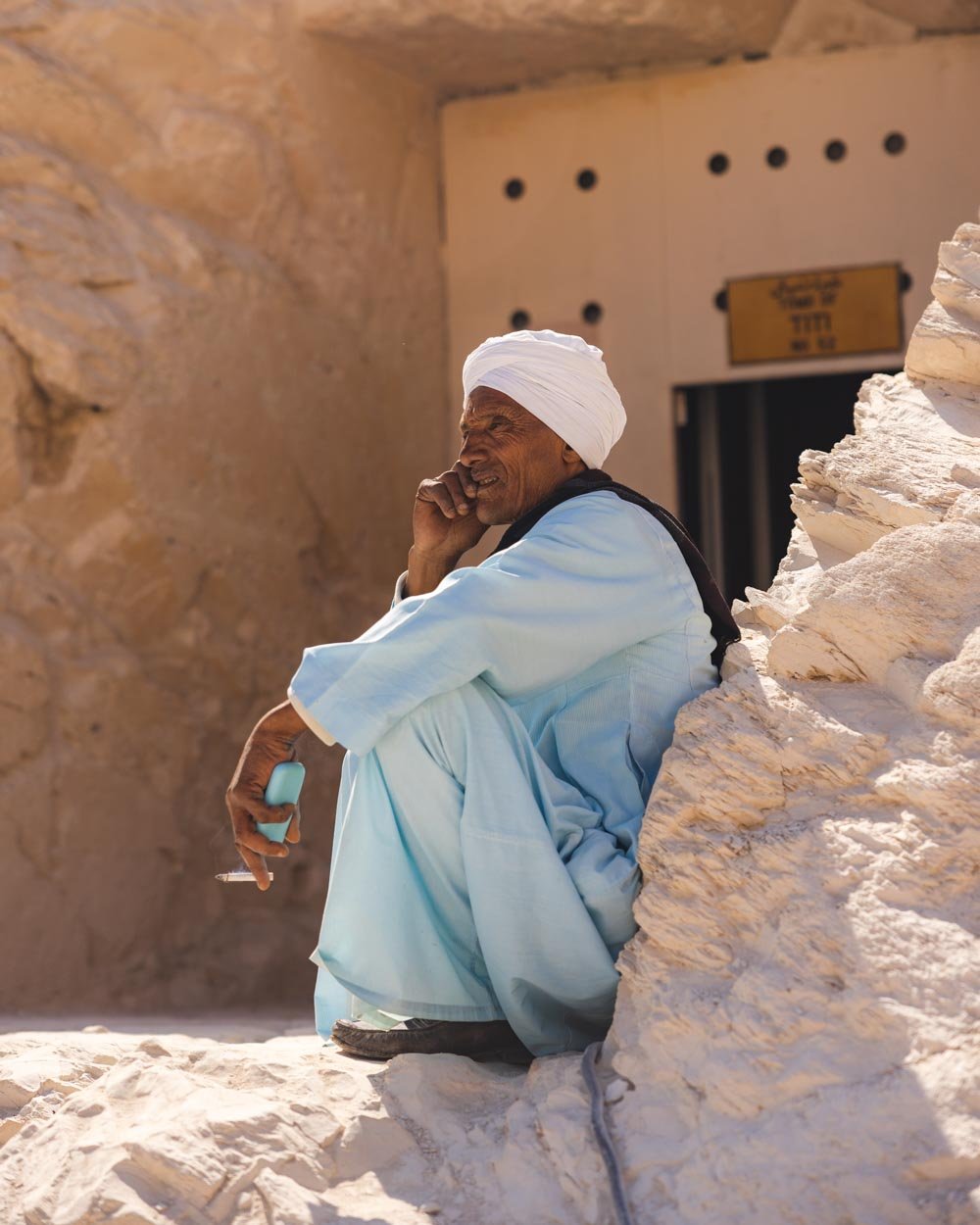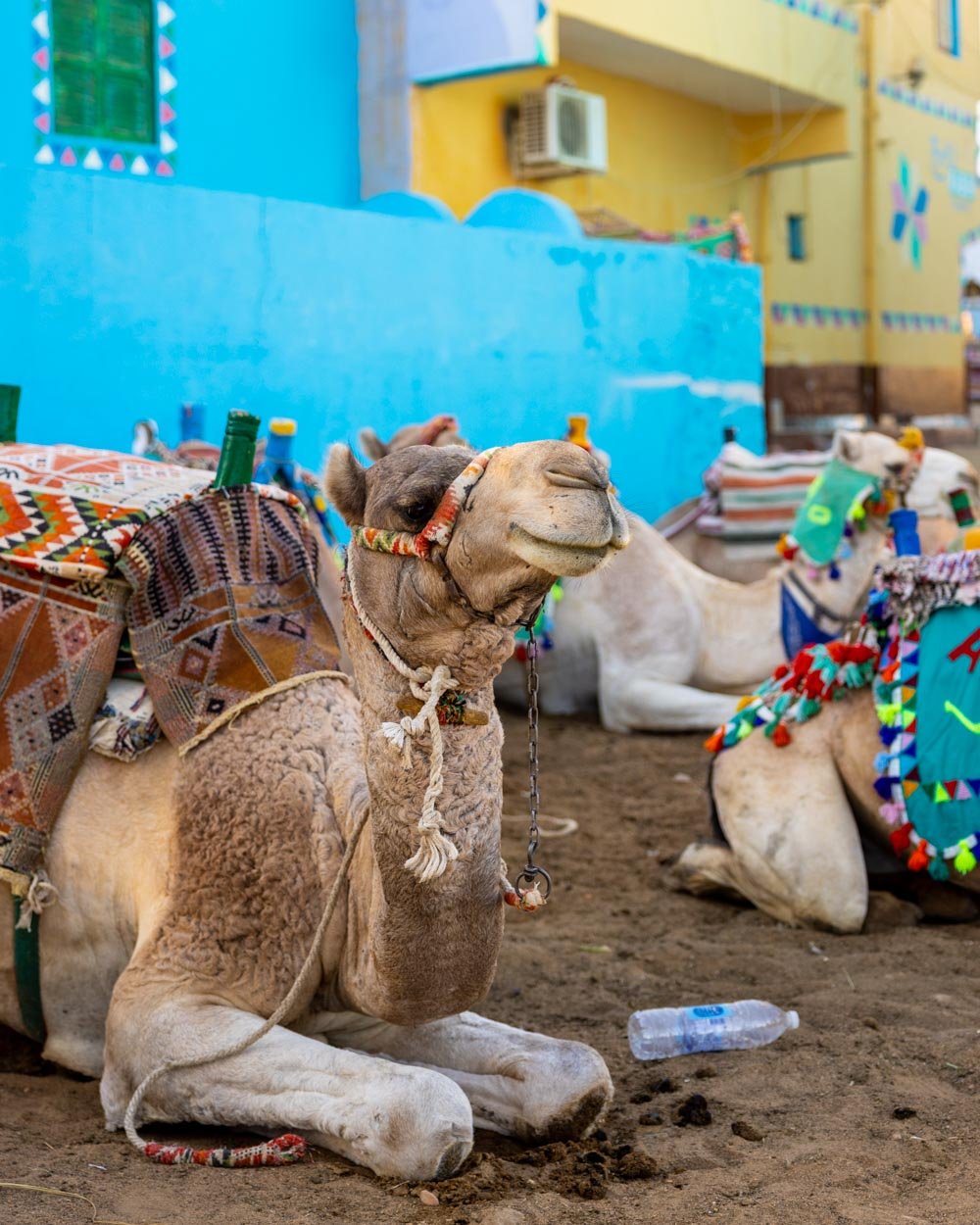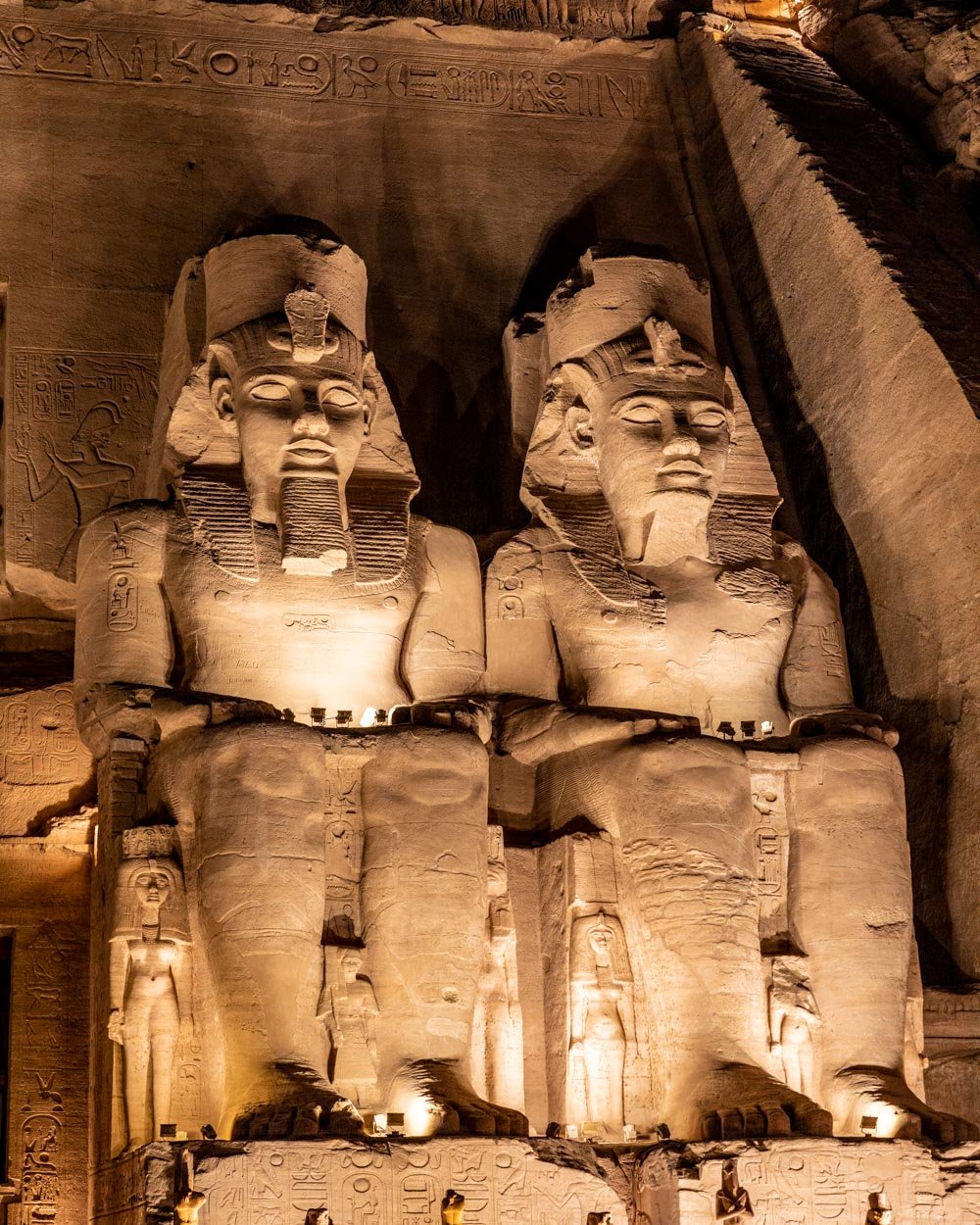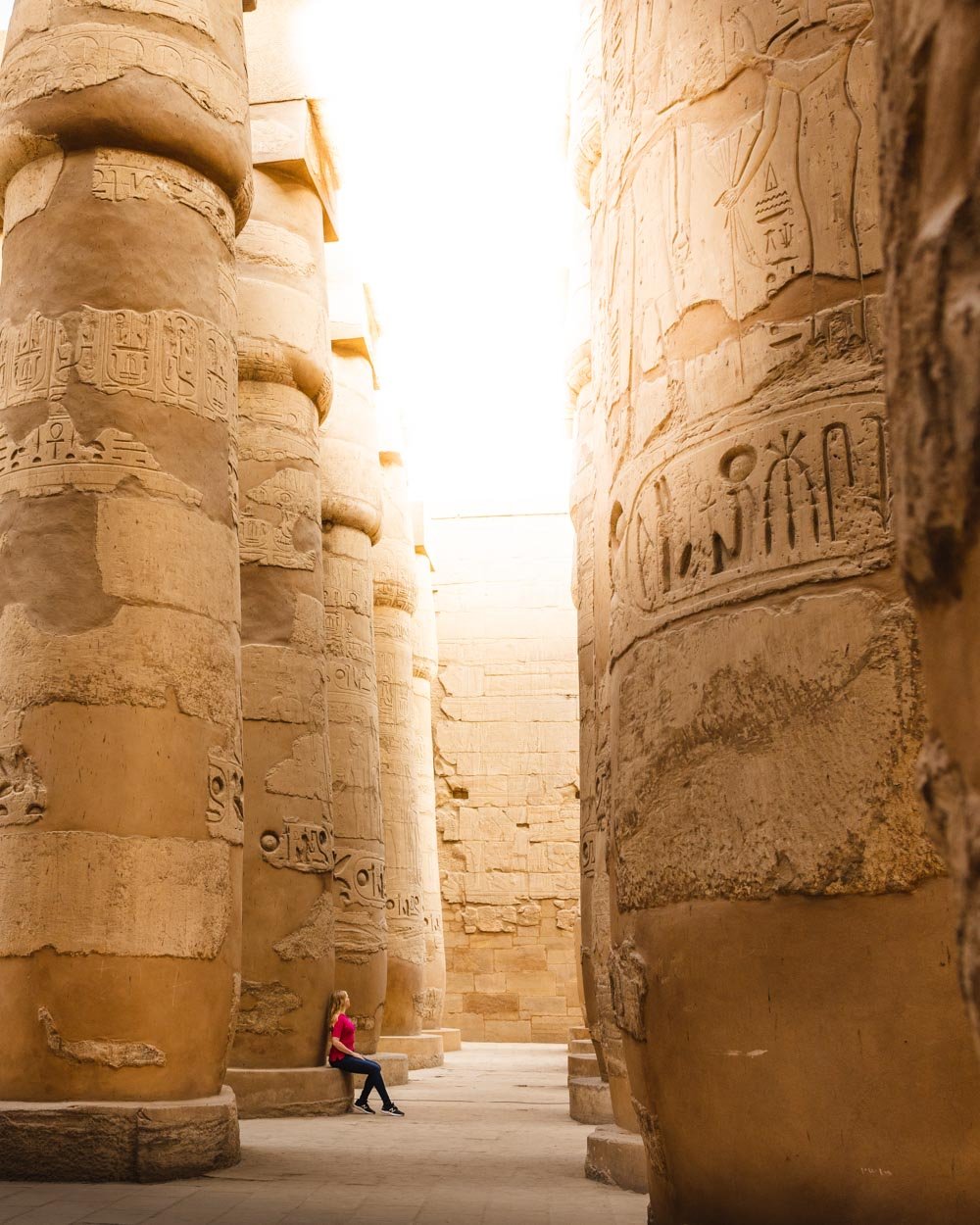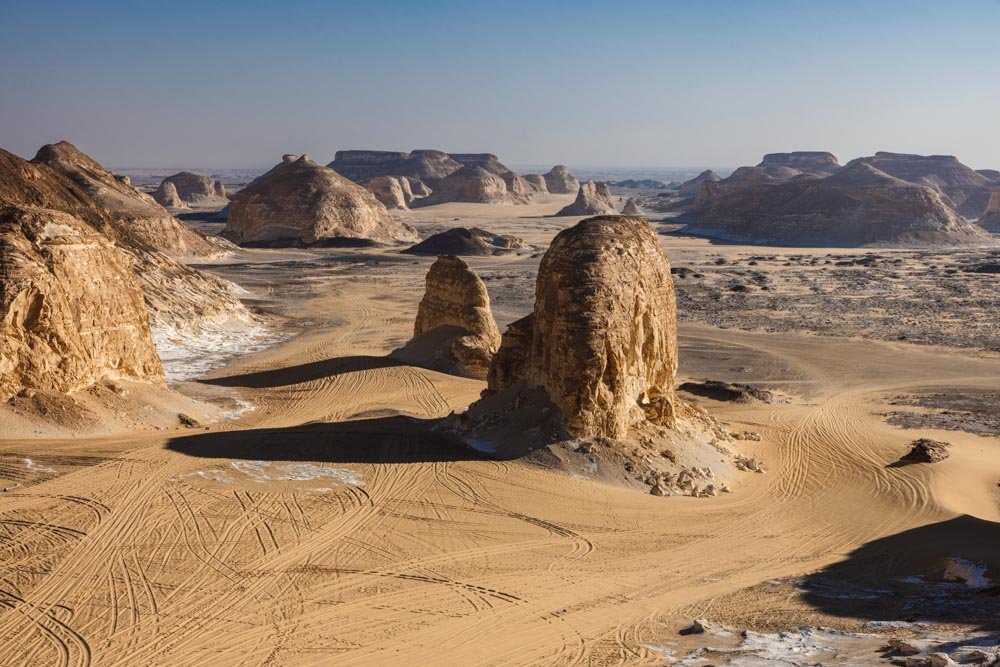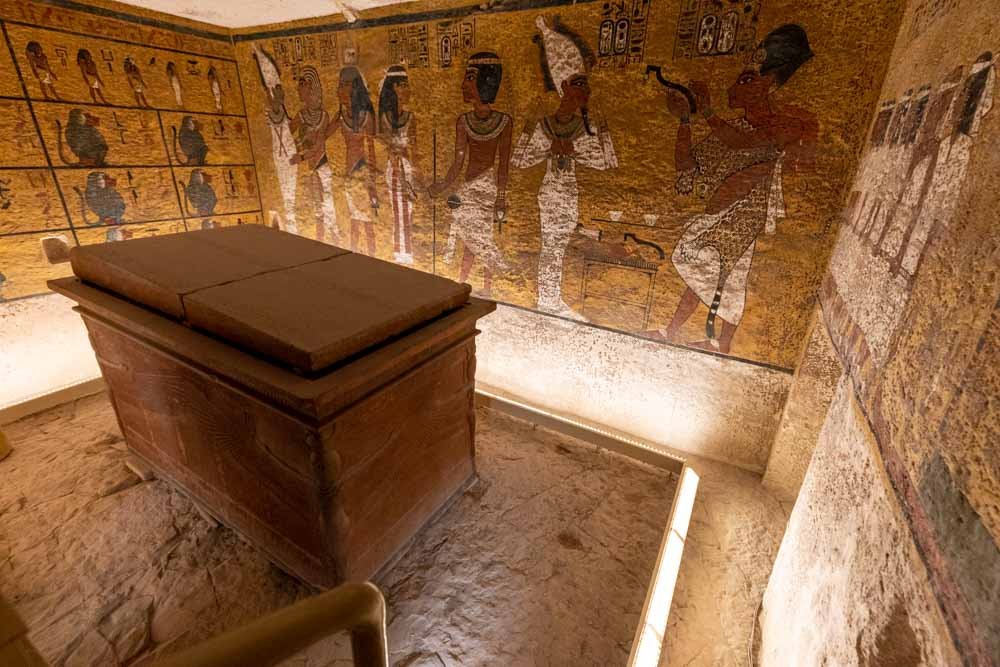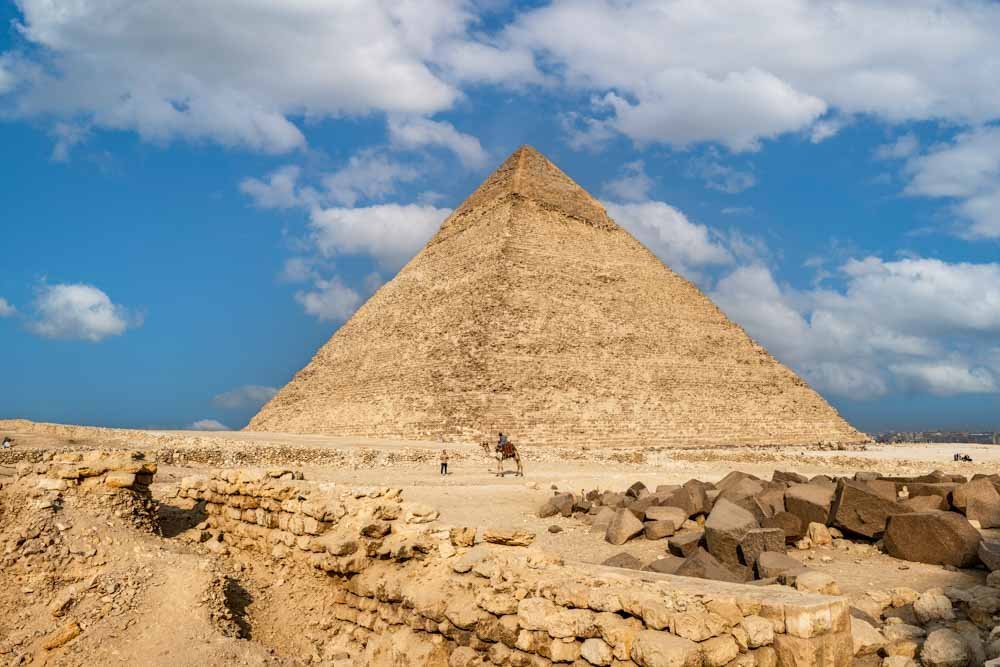Egypt is one of the world’s best travel destinations, with awe-inspiring historical sites unlike anywhere else on earth. But it’s not just for the history lovers, you’ll find your fair share of outdoor adventure here too if you know where to look.
I’ve visited three times now and each trip has been incredible. However, there are a few shady individuals who have devised a number of tourist scams which can leave you out of pocket, and with a slightly less rosy feeling than you really should have on a bucket list trip.
We’re sharing the common scams, mistakes to avoid, and things to know before you visit Egypt, so your trip goes off without a hitch.
Mistakes to avoid in Egypt
1. Not understanding that haggling is expected
Depending on your personality type, haggling might be a bit of fun, or a really cringey ritual you dread. But whichever category you fall into, you will need to make peace with the fact that if you don’t haggle, you are going to be seriously ripped off. Sellers, whether that be taxi drivers, tour providers, or souvenir pedlars will start by offering you a very inflated price, expecting you will negotiate from there.
Haggling is part of the culture and if you don’t take part in it you will probably need four times the spending money! I am not suggesting arguing over a few cents, but as an example, one starting price we were offered for a trip around the West Bank in Luxor was USD $60. The going rate even at tourist prices is more like USD $13 - 20. So you can see how not haggling can really escalate your spending budget.
2. Not embracing the concept of baksheesh
Let’s stick with money for a minute, as this is another one that will affect every traveller to Egypt. Baksheesh is basically a tip, or sometimes more like a bribe. It’s another practice that’s ingrained in the culture, and understanding and embracing it from day one will enhance your experience in Egypt.
Sometimes you might be tipping for something you really shouldn’t have to, but the amounts are usually so small that not doing so only harms you. A good example of this was when we visited the Pyramids. Upon going through the entry gates, we were told by security that we couldn’t take our zoom lens into the complex (when it was actually allowed in terms of the government’s own rules).
No amount of pleading would fix this problem, but after a hand was held out and we gave a little baksheesh, the zoom lens was miraculously most welcome inside the pyramids. Yes, it’s annoying, but paying a very small amount of money is far less annoying than not getting the photos we wanted inside the pyramids.
Baksheesh can also lead to some unexpected positive experiences too, as it can be a way to gain access to things you otherwise wouldn’t be able to: think roped off rooms in certain tombs. This led to some truly memorable experiences for us.
3. Not using Uber in Cairo and Alexandria
The day we left Cairo for Luxor, and suddenly had to negotiate with the taxi mafia and pay tourist prices for our rides was a sad day. Uber in Egypt was a dream and I couldn’t imagine having to get around Cairo without it.
The taxi drivers in Cairo are some of the worst and will extort you for as much money as they can. If you use Uber, you’ll get a fair local price and have a bit of relief from the haggle, and the hassle that goes with it.
If your first stop in Egypt is Cairo, you’ll get a rude shock in your next destination when you’re suddenly being asked for 10 times the price for a comparable journey.
We’ve got a whole guide on tips for using Uber in Egypt so you can see how it differs from your home country.
4. Thinking the hotel star ratings are objective
If you see a five star hotel at a really cheap price, just know that some things really are too good to be true! There are very few genuine 5 star hotels in Egypt (by world standards) and that also goes for lower star ratings too. Many hotels inflate their rating - they will likely be at least one category down from the equivalent in your home country.
I would recommend going heavy on the review reading before booking any hotel in Egypt. In particular, I would be looking out for noise complaints - and heed them when you see them - especially if you’re not a very heavy sleeper. Egypt is a noisy country and in the major cities, it goes throughout much of the night.
5. Falling victim to the taxi swap game
When organising any day trip with a taxi driver, make sure you see the car you will be going in, and insist that’s the car you want to book. This may sound obvious, but too often you’ll take a short journey in a decentish car and agree to a longer trip the next day, assuming you will be going in the same car. Instead, a tiny old banger sans seatbelts will arrive, and you’ll be stuck with it as you probably don’t have time to organise another one without missing out on some of your stops.
Even with due diligence, this may still happen to you, but you can try and mitigate it. If you’re doing a long journey or full day trip, ask the driver to confirm on Whatsapp that they are bringing a particular car.
After a few taxi swaps, we got wise to the trick and managed to avoid it on some of our really long journeys by asking for a photo of the car.
Ditto if you’ve booked a taxi with a driver that speaks English and this is important to you. Without confirming you are paying for that particular driver, you may be sent someone who doesn’t speak any English. This didn’t really matter to us as we had Google translate on our phones, but if it’s important to you confirm it ahead of time.
6. Believing that all museums are actually museums
This might sound strange, but it’s one of the most common scams in Egypt.
A huge number of shops that might otherwise not receive many tourist visitors have decided to call themselves museums/schools/institutes. This is to lure you in under the pretence they are some sort of official museum, when in fact they are overpriced tourist shops. They will offer you some free tea and nice chat before attempting to overcharge you for things by quite some margin.
The scam is run in conjunction with the local taxi mafia. If you’re asked in the middle of one of your day trips if you want to visit an alabaster factory, papyrus museum, or carpet school, know that your driver is making a fat commission from any purchases you make - up to 40% of the price you pay.
If you actually want to purchase any of these things and you’re happy with the price, it’s totally fine, but more often than not people are guilted into buying things they don’t want at high prices because of their friendly driver and charming ‘museum owner’.
7. Not checking the up to date exchange rates
This is particularly relative to American visitors, or anyone bringing American dollars into the country. The Egyptian pound has become very volatile in recent times and this can greatly affect how much you’re paying for things in country.
A strong dollar can be really beneficial for visitors, but it can also mean you vastly overpay for things without realising.
One such example is the Luxor Pass which can only be purchased in US dollars. When I first looked at planning our Egypt trip, a particular tomb cost the equivalent of US $87 (shocking, but true, you can read about it here) and a matter of weeks later it was down to USD $45.
All other sites were also affected, so our USD $200 Luxor Pass was suddenly not nearly such good value and in fact, despite visiting a huge number of sites, we only just broke even. Your average tourist would have lost money.
Many taxi drivers will also ask for day trip fees in US dollars, so make sure you are bang up to date on the exchange rate. Within a month of leaving, we saw that the exchange rate had changed by another 20%!
8. Believing that Egypt is only about the history
There’s no doubt that some of the most fascinating and memorable historical sites I have ever seen are in Egypt. However, outdoor lovers will be seriously missing out by thinking that’s all Egypt has to offer.
Dig a little deeper and you’ll also find incredible slot canyons, as well as great hiking trails and of course world class snorkelling (that one is obviously more well known).
Whilst the historical sites are unmissable, if you can also spend a bit of time wandering through the towering walls of a canyon, hiking to a mountain top for sunset or sleeping out under the Milky Way, then your trip is going to be much more varied.
9. Trusting every tour guide you meet
Not all tour guides are honest; sad but true. We were shocked when wandering the streets of Dahab looking for someone to take us to visit the slot canyons and spotted a picture of a very familiar looking canyon up on the wall. We were not looking at Coloured Canyon as the sales poster stated, but the world famous Antelope Canyon, one of the most spectacular on the planet.
Luckily having visited this canyon when in America, we knew we were looking at a scam. Others wouldn’t be quite so lucky. And in fact the scam ran deeper than simply using a picture of a different canyon. Instead of taking you to the utterly wonderful Coloured Canyon, many operators will instead take you to the closer, smaller and far less incredible Salama Canyon. A double whammy.
When it comes to tours, do your homework before booking, and if you’re looking for tour guides in the Dahab/Red Sea area, we have two recommends that are honest and will give you a great trip. We paid full price for all our trips with them, so you don’t need to worry about bias. Their details are in our guide to the best things to do in Dahab.
10. Attempting to bring a drone into the country
Drone are illegal in Egypt and will be confiscated at the airport. You might also be taken by border force for hours of questioning if you’re found to have a drone in your baggage. Even if you somehow got it past security, all major tourist sites have scanners and bag checks before you go in, so you wouldn’t be able to fly it. Even in remote parts of the desert there are regular military flyovers, so there’s basically nowhere you could risk flying in Egypt.
Technically you could ask for permission from the Egyptian Civil Aviation Authority before entering the country, but good luck with that one!
11. Tipping in small denominations of your own currency
I feel like in this guide I’ve knocked a lot of people involved in the Egyptian tourism industry, but the truth is the majority of Egyptians are some of the friendliest people you’re ever likely to meet.
That’s why it made us a bit sad when we realised that lots of people tip in coins or small denominations of their own currency, not realising that it cannot be exchanged in Egypt. We met several tomb guardians in the Valley of the Kings who had coins and small notes in so many different currencies that were actually worth nothing to them.
You’ll never see a bigger smile on someone’s face than when you offer to change the useless Euros and American dollars for their own currency. It’s best to tip in Egyptian pounds, although bigger bills in American dollars are great if you’re feeling super generous with your tipping, but not $1 notes or coins.
12. Not visiting the outer pyramids
The Pyramids of Giza are incredible, and world wonders for a reason. But they are scam central and a visit here is possibly not the experience you were dreaming about when planning your trip to Egypt.
What you might not know is that less than one hour from Giza you can visit the oldest pyramids in the world. Far away from the touts and maddening crowds you’ll find some of the most atmospheric pyramids in Egypt.
The Pyramids of Dahshur are the real deal. The Red Pyramid, in particular, is picture perfect on the outside and a proper adventure on the inside. If you thought venturing into the tomb inside the Great Pyramid looks fun, then you have to go inside Red, or Bent Pyramid in Dahshur.
Prepare to get your Indiana Jones on in what may just be your most memorable adventure in Egypt.
13. Spending too long in Cairo or Giza
Giza in particular is an absolute must for your Egypt itinerary, however, a trip here is an assault to the senses. Not only do both Cairo and Giza reside under a thick layer of smog (the air quality is amongst the worst in the world), but they are also unbelievably noisy.
We’re talking cars honking en mass with reckless abandon through to 4am, not to mention packs of stray dogs, dump trucks, engines idling, thumping music and a reeeally early call to prayer.
In addition to this, if you’re staying around the Pyramids area in Giza, you will get a lot of hassle from the moment you walk out the door of your hotel. It gets wearing. Then there’s the traffic. Don’t get me started on the traffic.
We’d recommend 2-3 nights to see the Pyramids, Egyptian Museum and outer pyramids. Or if you want to see more of Cairo, then split your stay into two parts so you get a break inbetween.
14. Thinking you need a guide every time you’re told you do
There are some places in Egypt where you genuinely must take a guide (such as the slot canyons in the Sinai) but there are many where you are told you need a guide and you don’t. The Pyramids are a prime example. We’ve visited the Pyramids three times, each time without a guide. We just prefer to do things independently. Ditto the Valley of the Kings and every other site in Luxor.
It’s not to say if you get a guide that they won’t enhance your experience, a good guide will definitely do that in certain incidents, but you don’t need one. And if you do hire one, make sure you vet them first. You might think you’re hiring someone to share some of Egypt’s rich history with you, but in reality you’re going to get someone who simply wants to take a thousand photos of you making pyramid hats, before taking you to a ‘museum’ aka shop.
Make sure you share your interests with any prospective guide ahead of time, so you can check their kind of guiding aligns with your desired trip.
15. Not learning a few words of the local lingo
Even learning a handful of words - hello, please, thank you, that’s good, etc - will honestly make a difference to your trip. Not because you’ll meet anyone who can’t say any of these words in English, but because the locals love it when you make even the smallest bit of effort.
The amount of times we received big smiles and compliments on our pronunciation (when we were no doubt butchering the words) were too many to count.
It always got a conversation off on the right foot and I genuinely think it made a difference to people. If you can learn a few specific Egyptian Arabic phrases, rather than traditional Arabic, even better!
16. Thinking you’ll sleep on the night train
Taking the night train from Cairo to Luxor had been on my wish list for while, ever since I saw Michael Palin do it many moons ago. In the intervening years I’ve taken over 20 night trains in many different countries, and Egypt was the bumpiest of the lot. Unless you are very good at sleeping through severe jolts, heavy braking and a whole lot of vibrating, then you can expect a near sleepless night.
I’m not saying it won’t be an adventure, or that you shouldn’t do it, but I am saying you might not want to plan a big trip to the West Bank the day after!
17. Trusting the prices, opening times and photography rules online
All these things change often in Egypt, and we know we’ll be guilty of sharing specifics which will probably date fast. We’ve included details on costs etc to try and be as helpful as possible, but we know from having done our own online research that so much changes fast.
Use costings (and exchange rates) as a guideline, but don’t be surprised if things have become more expensive. Ditto with opening times, these were often inaccurate, so ask your hotel for up to date information when you arrive in a place.
Re photography rules, at time of writing, we could take pictures in all tombs and at the Pyramids etc free of charge, with any camera. However, in the past certain places didn’t allow photography at all, or only with a cellphone, and sometimes with an additional cost attached. Hopefully they remain as they are, but I wouldn’t be surprised if they don’t.
This post may contain affiliate links, meaning at no additional cost to you, that we will earn a small commission if you click through and decide to make a purchase. This helps towards the costs of running our website. Thanks for your support.

